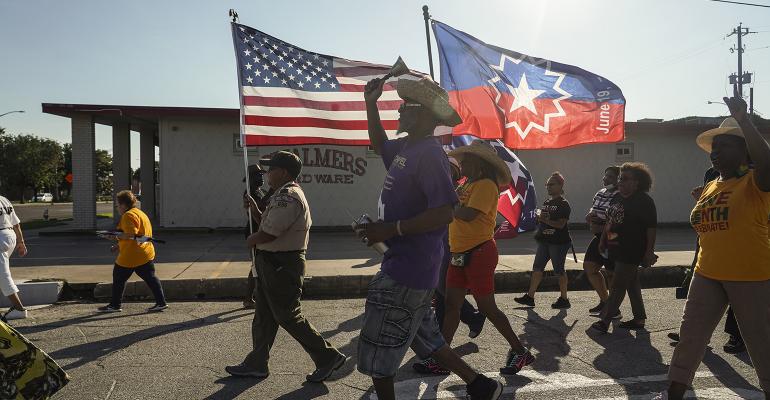Let’s start with the obvious: because they’re a part of American history, two threads of similar string in the mosaic that is our shared national experience. Further, of course, we need to know about Tulsa and Juneteenth because they make us uncomfortable—and should do so, even now—which means that they’re difficult truths with which we must deal to understand ourselves fully and relate well and effectively in this society.
But more than this, Tulsa and Juneteenth are about the reality that each of us and all of us have difficult parts of our personal histories that inform our choices—and especially our behaviors—in life, which means that those of us who’ve chosen an advisory profession need to be aware of and sensitive to the realities like these that’re most often hidden. As the profoundly revealing research on the phenomenon of "covering" demonstrates, we’re most often not who we really are but are projecting who we want others (and possibly ourselves) to think we are. So, in order for us to be effective and impactful advisors, we have to appreciate the omnipresent hidden, be trustworthy so that those we serve can share it (on their terms and should they deem it appropriate, of course) and be fully present, empathetic and compassionate if they do.
Now am I suggesting that we go out and ask those whom we serve directly about their problematic experiences? Of course not … but we should always remain mindful that there is likely more to the story, which means, therefore, that we should conduct ourselves in an advisory capacity in ways that enable (though not pressure or compel) those we serve to share openly and honestly. If they choose to share, and when they choose to do so, should always be their choice and a voluntary one.
Virtually everyone who advises clients has experienced moments of intuition when they sense that there is more to the story than the client is willing to share. Which means that we’re left with imperfect information upon which to base our advice.
Though I have no idea what the hidden histories of your clients—and especially those of your ‘internal clients,’ your colleagues—are, but I do know they exist and they impact how well you can serve them. No, you shouldn’t ask—beyond an appropriate “Is there anything else you like to share that you think that I should know?”—and certainly you shouldn’t press them, no matter how sincere your motivations. It’s their story to tell, if they so choose, and your responsibility to be ever present, open and respectfully receptive. Therefore, it’s imperative that you ensure that you conduct yourself in ways that enable these revelations if and when they occur.
Just like all of us, our clients and colleagues may never choose to share, or they may do so sparingly and subtly, which requires we be present and listen carefully and compassionately. And once gifted with this most personal of information and insight, we’re called to respond empathetically, thoughtfully and with great care. In so doing, we’re not only enabled to provide fully informed and bespoke advice, but we’re able to demonstrate the humanity at the core of every service profession, including ours.
Hidden history shouldn’t be a barrier to our ever more effective and mutually beneficial association either intrapersonally, interpersonally or societally. In fact, it’s an invitation for us to engage more meaningfully with ourselves and each other. Yes, sometimes what’s revealed will be challenging, but this pales in comparison to how meaningfully enhanced our relationships can be thereafter.
Tulsa and Juneteenth are just two examples of how these invitations to deeper, more mutually beneficial community are ubiquitous, if we but choose to see them.
Walter K. Booker is the chief operating officer of MarketCounsel, a business and regulatory compliance consultancy for investment advisors.





